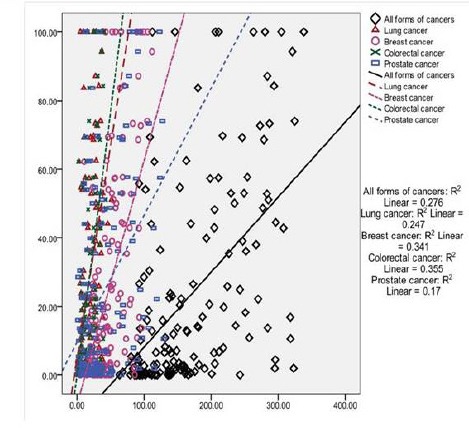Here’s a summary of the most interesting research I saw this month:
Spermidine may prevent atherosclerosis1
Spermidine, which is found naturally in wheat germ and legumes (particularly soy), is capable of impeding the oxidation of bad cholesterol (LDL), a crucial step in the development of endothelial dysfunction and atherogenesis.
The researchers also found its antioxidant effects on LDL to be higher than the well-known antioxidant α-KG (Alpha-Ketoglutarate).
My comment: More research is needed to determine whether supplementation in humans is a good idea, but this certainly supports the existing evidence that dietary spermidine is a good thing.
Microplastics hinder plant photosynthesis2
Researchers estimated that between 4% and 14% of the world’s staple crops of wheat, rice and maize is being lost due to microplastics, and the numbers could rise.
They also estimated that microplastic pollution could increase the number of people at risk of starvation from 700 million to 1.1 billion in the next two decades.
My comment: I gave an outline of some major problems caused by microplastics in my article about the risks of paint3, and this adds another important element to that. We need to stop using plastic.
Artificial light at night linked to cancer4
A study of data from 158 countries showed that artificial light at night is a significantly correlated with all forms of cancer, and also the four most common cancers – lung, breast, colorectal, and prostate cancer.
The researchers controlled for population size, electricity consumption in kWh, air pollution, and forested area.

My comment: It can be hard to properly control for variables when using huge and varied data sets like this, so it’s not convincing on its own, but other research has also shown links between light at night and cancer (especially breast cancer) for a long time5 6 7 8, so this could be a valuable piece of the puzzle. I personally make sure that my light at night is mostly red and amber, and that outdoor light pollution is not visible in my bedroom.
Replacing butter with plant-based oils could lower mortality by 17%9
Data from 221,054 participants was used to show that substituting 10 grams of butter a day (less than a tablespoon) with equivalent calories of plant-based oils could lower cancer deaths and overall mortality by 17%.
My comment: This is a popular political issue at the moment in the USA, so the timing of this study is important.
Reusing deep-fried oil may cause neurological disorders that are inherited by offspring10
To our knowledge we are first to report long-term deep-fried oil supplementation increases neurodegeneration in the first-generation offspring.
My comment: This research on rats is alarming, given how many of us consume takeout food cooked in reheated oil. It will be interesting to see whether a mechanism is discovered in subsequent research, with the authors expressing an interest in exploring the relationship between gut microbiota and the brain.
- https://pmc.ncbi.nlm.nih.gov/articles/PMC11858627/#sec3-molecules-30-00955 ↩︎
- https://www.theguardian.com/environment/2025/mar/10/microplastics-hinder-plant-photosynthesis-study-finds-threatening-millions-with-starvation ↩︎
- https://klaustownsend.com/the-risks-of-paint/ ↩︎
- https://pmc.ncbi.nlm.nih.gov/articles/PMC5454613/#sec1-3 ↩︎
- https://pmc.ncbi.nlm.nih.gov/articles/PMC8520294/ ↩︎
- https://pmc.ncbi.nlm.nih.gov/articles/PMC3002207/ ↩︎
- https://pubmed.ncbi.nlm.nih.gov/34656111/ ↩︎
- https://ehp.niehs.nih.gov/doi/full/10.1289/EHP9381#sec-3 ↩︎
- https://medicalxpress.com/news/2025-03-large-dietary-habits-oils-butter.html ↩︎
- https://www.asbmb.org/asbmb-today/science/032524/deep-fried-oil-neurodegeneration ↩︎